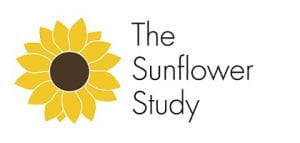UNBLOCS Trial Results
Study manager: Dr Jo Worthington
As men get older it is common for their prostate gland to enlarge. The prostate gland sits at the exit of the bladder like a collar, so when it enlarges it can be difficult, or even impossible, for men to pass urine or can cause other bothersome urinary symptoms. Surgery to relieve benign prostatic obstruction reduces the size of the prostate and is one of the most common operations performed in the NHS.
Transurethral resection of the prostate (TURP) uses electric current to resect the prostate and has been the gold standard surgery for over 40 years. Thulium laser transurethral vaporesection of the prostate (ThuVARP) is a laser technique which vaporises and resects the prostate, and had suggested advantages over TURP, including reduced incidence of complications and length of hospital stay.
The UNBLOCS trial (Thulium laser transurethral vaporesection of the prostate versus transurethral resection of the prostate for men with lower urinary tract symptoms or urinary retention) randomised men suitable for prostate surgery between TURP and ThuVARP, with co-primary outcomes of patient-reported urinary symptoms and urinary flow rate. The study undertook innovative measures to blind participants to their surgical procedure due to the patient-reported co-primary outcome, randomising in the operating theatre once participants were anaesthetised (https://pubmed.ncbi.nlm.nih.gov/28412960/).
The UNBLOCS study has been published in the Lancet. Overall, both TURP and ThuVARP were clinically effective operations for benign prostatic obstruction, with equivalent improvement in urinary symptoms 12-months post-surgery. However, TURP was superior for improving urinary flow rate. The anticipated benefits for ThuVARP of reduced hospital stay and complications were not observed, and TURP was slightly more cost effective and took less time than the laser procedure.
The UNBLOCS trial was funded by the UK National Institute for Health Research Health Technology Assessment Programme (HTA) (12/35/15). The views and opinions expressed therein are those of the authors and do not necessarily reflect those of the HTA, NIHR, NHS, or the Department of Health and Social Care.
Associate PI scheme success for Sunflower study
The Sunflower Study is a randomised controlled trial run by the BTC, investigating whether routinely testing all patients for common bile duct stones before gallbladder removal surgery is beneficial.
Study coordinator: Maddie Clout & Chloe Beard
Website: https://sunflowerstudy.blogs.bristol.ac.uk Twitter: @SunflowerStudy
The study is signed up to the National Institute for Health Research (NIHR) Associate Principal Investigator (PI) Scheme, which aims to develop junior doctors, nurses and allied health professionals to become the PIs of the future. A PIs role is to oversee the involvement of a clinical trial at their local hospital site. One trainee doctor at each recruiting site can join the scheme for six months and “shadow” the local PI, learning about the process of running a trial.
The scheme provides formal recognition of the trainee’s engagement in NIHR Portfolio research studies and is endorsed by the NIHR and the Royal College of Surgeons of England.
To date, over 70 surgical trainees have joined the scheme via the Sunflower study, contributing in a variety of ways:
- identifying and recruiting patients, which improves the recruitment rate, especially among out-of-hours emergency patients
- raising awareness of the study
- training members of the local team on the study
- Trainees also have the opportunity to suggest and take part in smaller sub-studies, allowing them to improve their publication portfolio.
The Sunflower study has a dedicated trainee coordinator to promote involvement in the study at its 50+ sites and is on hand to provide the details trainees need to join the Associate PI scheme. Feedback on participation in the scheme has been positive, increasing the likelihood of trainees taking part in, or even leading their own surgical research studies in the future.
The Sunflower study is funded by the NIHR Health Technology Assessment Programme (project number 16/142/04).
Fellow of the Society for Clinical Trials
Athene Lane, BTC Deputy Director, has recently become a Fellow of the Society for Clinical Trials. Fellows are awarded in recognition of significant contributions to the advancement of clinical trials and to the Society.
This was received due to Athene’s important contributions to the design and conduct of clinical trials, particularly the landmark ProtecT study; for leadership in clinical trial coordination and conduct, most recently as co-Director of Bristol Randomised Trials Collaboration, UK; for national leadership on numerous advisory committees, and for service to the Society.
Please join us in extending our congratulations to Athene for this well-deserved recognition.



